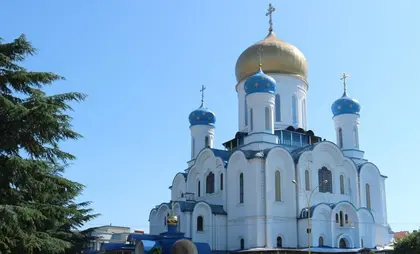The Zakarpattia Region Council decided on Thursday, June 1 to ban the activity of “religious organizations connected with the aggressor country Russia.”
The decision reflects a general trend throughout Ukraine of increasing distrust of the Ukrainian Orthodox Church of the Moscow Patriarchate (UOC-MP), which has, in many cases, remained silent regarding Russia’s aggression. Some instances of outright support for Moscow’s full-scale invasion have also been reported.
JOIN US ON TELEGRAM
Follow our coverage of the war on the @Kyivpost_official.
The ban also applies to other public organizations related to the Kremlin.
The motion “on ensuring the strengthening of national security in the sphere of activities of public and religious organizations in the territory of the Zakarpattia region” bordering Hungary was approved by the deputies of the regional council.
The move is designed to “prohibit the activities of religious, church, public and other organizations that cooperate or are connected with the aggressor country, the Russian Federation, on the territory of the Zakarpattia region.”
Members of the council also added recommendations to law enforcement agencies to ensure a quick and effective response to the detection of anti-Ukrainian propaganda by representatives of religious, public and other organizations.
However, despite any official ban, it is unlikely that concrete action will be taken to remove clergy in the near future. Such legislative decisions have thus far been used as part of a gradual pressure campaign to encourage parishioners and clergy to switch to the independent Orthodox Church of Ukraine (OCU), which is dogmatically and liturgically the same, for all intents and purposes, as the UOC-MP. The churches differ only in the area jurisdiction (one is ruled from Moscow, the other from Constantinople) and language (one celebrates the liturgy in Russian, the other in Ukrainian and Church Slavonic).

EU Transfers €1.5 Bln Raised From Russian Assets for Ukraine
A recent Democratic Initiatives Foundation poll showed that as of March 2023, more than 50 percent of respondents in Ukraine considered the activities of the UOC-MP a factor that contributed to the Russian invasion.
The largest number of Ukrainians who believe that the UOC-MP contributes to the aggression of the Russian Federation are in the western part of our country, which includes the Zakarpattia region. There, 60 percent agree that the activities of the UOC-MP contributed to Russian aggression against Ukraine.
You can also highlight the text and press Ctrl + Enter






